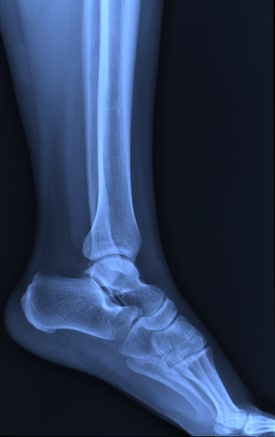Total Disability Rating Based on Individual Unemployability, or TDIU, is a VA program that awards benefits at the 100% level without a 100% rating. This type of disability is based on employment.
To qualify for TDIU, veterans must:
- have only one service-connected condition rated at least 60% or higher, OR
- have two or more service-connected conditions, with at least one condition rated 40% or higher, with a combined rating of 70% or higher.
But can the VA take away TDIU? The short answer is yes, but not automatically. There are requirements they must follow when reevaluating your eligibility.
Can The VA Take Away TDIU?
Before the VA reduces a disability rating, they are required to provide you with prior notice of the proposed notice of reduction. If the VA does not follow the rules and regulations when proposing a reduction, the reduction is considered void and unlawful.
If the VA has determined that your current disability rating warrants reduction, they must first issue a notice of proposed reduction.
This first notice gives you 60 days to submit evidence to show that your condition has not improved. You also have an option to request a pre-determination hearing within 30 days of the notice. Requesting a hearing may buy you additional time to submit evidence.
What If You Start Working While Receiving TDIU?
If you’re receiving TDIU and start working again, you should notify the VA of your change in employment. Remember, the VA is going to look into a few factors. They’ll look into:
- How much money you’re making
- How long you’ve had the job
- What accommodations your workplace provides
- Your specific disability
- Etc.
These factors determine whether you need TDIU.
If you’re receiving TDIU and are making a substantial income, you could end up owing the VA money. This is because the VA may claim they have been overpaying you benefits. So, it’s always best to notify the VA if you begin working again.
Protections for Veterans
There are several protections set forth in the regulations against a proposed reduction. One of those protections is for 100% VA disability ratings when based on unemployability (IU or TDIU). If a veteran stopped working as a result of their service-connected disability, then that veteran may be entitled to 100% rating based on unemployability.
The VA has the burden to demonstrate that actual employability has been established by clear and convincing evidence for them to reduce or sever TDIU. This is a very high burden to meet.
Even if you are working, you are allowed to keep your TDIU for a full year. However, in cases where the veteran has not returned to work, then the VA has to have really good evidence to discontinue TDIU.
Under the regulations, if the VA determines that the veteran has sustained improvement and that such improvement warrants reduction of a TDIU rating, but the record reflects that the veteran is unable to engage in substantial gainful employment, then TDIU must be preserved.
In other words, in cases where your disability has materially improved, your TDIU rating can still be protected from reduction if the evidence shows that you are unable to work due to your service-connected disability.
TDIU Re-examination
If you submit evidence prior to the expiration of the first 60 day notice, there is a possibility that the VA will find reasonable basis to send you for a re-examination. If it decides to do so, the final rating action is deferred pending the outcome of the new examination.
A very important point is that an examination that is the basis for reduction must be as thorough as the examination that established the current rating.
Attending the examination is very important. If you do not show up, your benefits will be automatically reduced or terminated. If you are unable to attend on the date scheduled, you must call and reschedule, or have a very good reason explaining your absence.
The VA must then review all of the new evidence, including the report of re-examination, in the context of the entire record.
The VA’s TDIU Decision
The VA will then issue a final rating decision. The second rating decision starts a new 60-day period. The implementation of the reduction goes into effect on the last day of the month of the second decision.
The takeaway is that even if the VA reduces a disability rating, they can’t take away TDIU unless they have evidence that is clear and convincing of marked improvement unequivocally demonstrating that you have regained the physical or mental capacity to return to the workforce on a sustained basis.
Did the VA Deny Your Disability Claim?
Let our team review your case today!
Get a Free Case Evaluation



